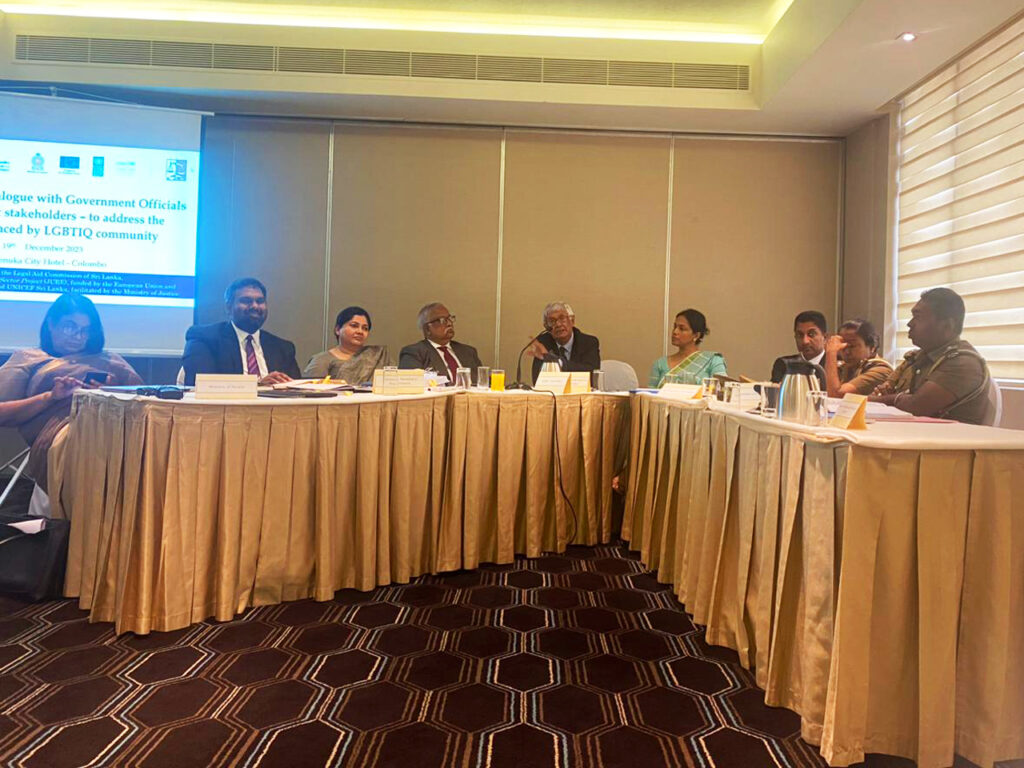January 4, 2024 Bridge Team

In an effort to promote inclusivity and address challenges faced by people of diverse Sexual Orientations, Gender Identities, Gender Expressions, and Sex Characteristics (SOGIESC) in Sri Lanka, the Legal Aid Commission of Sri Lanka, under the Support to Justice Sector Project (JURE), organised a Round Table Dialogue.
This significant event, supported by the European Union (EU) and jointly executed by the United Nations Development Programme (UNDP) and the United Nations Childrens Fund (UNICEF) Sri Lanka, was conducted in collaboration with the Ministry of Justice.
The dialogue brought together key stakeholders, including representatives from the Attorney General’s Department, the Ministry of Justice, Women and Children’s Bureau, Sri Lanka Police, Prison’s Department, Human Rights Commission of Sri Lanka (HRCSL), Legal Aid Commission, and the Bar Association of Sri Lanka (BASL).
A crucial outcome of the dialogue was the unanimous agreement among participants on the importance of collaboration and communication between the government and the Lesbian, Gay, Bisexual, Questioning, Intersex, and Asexual (LGBTQIA+) community for meaningful progress.
In line with this commitment, it was decided that LGBTQIA+ organisations would compile a comprehensive list of requests and recommendations. These submissions are to be submitted to the Legal Aid Commission thereafter.
In recent developments, a circular released by the Sri Lanka Police outlining protocols for interacting with individuals of transgender identities within the country and offering recommendations for addressing their problems was subjected for review with the aim of extending protection to encompass the entire spectrum of SOGIESC.
A private member’s bill showcasing decriminalisation of consensual same-sex sexual relations between adults via a ‘Penal Code (Amendment) Bill’ was tabled by Ruling Party MP Premnath Dolawatta, a historical first move by a Sri Lankan lawmaker for the safeguarding of the rights of the LGBTQIA+ community.
Dolawatta’s bill was challenged before the Supreme Court of Sri Lanka accusing it to be violating fundamental rights (FR), but the arguments were dropped in a historic determination that consensual same-sex sexual relations between adults are in fact constitutional and any move for decriminalisation can be passed into law with a simple majority in Parliament.
Source: https://lankanewsweb.net/…/legal-aid-commission-hosts…/